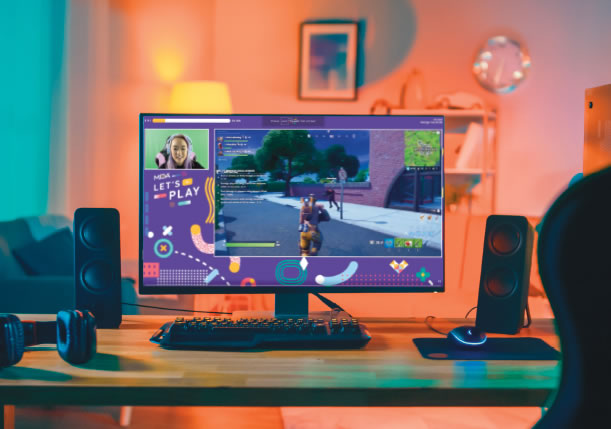
Parenting

MDA Summer Camp Primes Kids for Independence
When Matthew and Jacob Rovenstine first went to MDA Summer Camp in Arizona in 2018, the brothers were 10 and 8, respectively. They live with collagen VI muscular dystrophy, a type of congenital muscular dystrophy, and at the time, their mom Becky feared that her shy boys might have trouble being away from home for the first time.
Read More
MDA Q&A: Let's Talk
The MDA Resource Center is available to provide one-on-one support. Here, Resource Center specialists answer Quest readers’ questions. Q: How can I find a therapist who knows about mental health and living with neuromuscular disease? —Jeffrey, New York First, we applaud you for prioritizing your mental health. Because neuromuscular diseases are considered rare, it might be difficult to find a mental health professional who is familiar with a specific disease. We recommend looking for a therapist who has worked with people living with chronic health conditions. Consider asking if they are also willing to counsel your family members, as a neuromuscular disease can also affect loved ones in their own ways.
Read More
Claiming My Courage
There are few specific dates that stick in my memory. Sept. 21, 2016, is one of them. On that day, a phone call changed my family's lives forever. After two long years of visits with specialists and countless tests, there was finally a diagnosis for my 4-year-old son: centronuclear myopathy. In addition, his diagnosis was my diagnosis; he had inherited the mutation from me.
Read More
Parent Pressure
Since her son Jackson's diagnosis at 3 months old, Marcie Epstein has always maintained a grounded perspective on his neuromuscular disease. Jackson, now 12, first showed signs of central core disease (CCD) at 5 weeks. "This is how Jackson was born," Marcie says. "This is his life."
Read More
Game On!
On March 21, MDA launched Game Night, a weekly Saturday night event designed to gather online gamers and families for regular connection (and a little healthy competition).It couldn’t have been better timed.MDA began developing its online gaming platform, MDA Let’s Play, in 2019. The idea was simple: connect the online gaming community and the MDA community — which already overlap — to grow a new network of support. And now, as families have found themselves practicing social distancing from friends, neighbors, and family, there’s no better time to go online for a bit of fun together in support of MDA’s cause — and maybe to build the most amazing Minecraft village in history while they’re at it.
Read More
All in the Family
Within our family of five, my daughter and I have a neuromuscular disease called scapuloperoneal spinal muscular atrophy (SPSMA). I was born with this rare motor neuron disease, and our precious Leah inherited the same disease; however, this is not what makes us unique. What makes our family uncommon is our relentless dedication to accomplishing tasks collectively.
Read More
Coping Through a Crisis
(Editor’s note: In the print edition of Quest Issue 1, 2020, Sarah Clark-Stoney, MSW, LSW, was misquoted. Her quotes have been clarified here, and updated in the full, downloadable PDF version of Issue 1, 2020.) Fifteen years ago, my family lived through Hurricane Katrina in Louisiana. At the time, our son was a freshman in high school. Falling pine trees and rain destroyed half of our home. Rebuilding took seven months, and we lived in the chaos during the process.
Read More
The Importance of Genetic Testing
Kelly Berger, 31, of Cincinnati, spent most of her life chasing a diagnosis. When she was 3, her parents noticed that, although she reached physical milestones for her age, she did them in unusual ways. For example, to step up, she pushed off her thighs with her hands, and she preferred crawling on stairs to walking them. Her parents took her to a neurologist and, after bloodwork, an electromyography (EMG), and a muscle biopsy, she received a diagnosis of spinal muscular atrophy (SMA) type 3. That was in the early 1990s, when fewer types of neuromuscular disease were understood.
Read More
What’s the Toy Story?
Barbies were a favorite toy of young Jessica Hetzel, despite the fact that the dolls looked nothing like her. It took until February 2019, when Jessica was 17, for Mattel to release a Barbie in a wheelchair. “I’m not playing with Barbies these days,” says Hetzel, who has spinal muscular atrophy (SMA). “But I was excited to see they finally did it.”
Read More
In Good Hands
All parents need time to themselves, but for BJ Mirabile of Winchester, Mass., finding child care for her daughter Katie, who has spinal muscular atrophy (SMA), often proved difficult. “When she was younger, we had some neighborhood sitters and sitters through early intervention,” Mirabile says. But early intervention services are for babies and toddlers with developmental delays or disabilities. Now Katie is older, and she uses a power wheelchair, BiPAP (bilevel positive airflow pressure) machine and MIC-Key gastric feeding tube.
Read MoreMDA Resource Center: We’re Here For You
Our trained specialists are here to provide one-on-one support for every part of your journey. Send a message below or call us at 1-833-ASK-MDA1 (1-833-275-6321). If you live outside the U.S., we may be able to connect you to muscular dystrophy groups in your area, but MDA programs are only available in the U.S.
Request Information